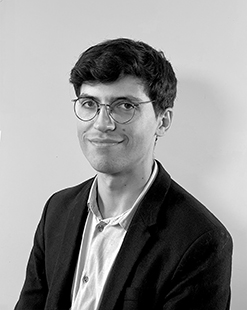Informations sur l’INHA, ses actualités, les domaines et projets de recherche, l’offre de services et les publications de l’INHA.
Alumni
Suivez le parcours et les actualités de celles et ceux qui sont passés par l’Institut national d’histoire de l’art.Loïc AH-SON
Coordinateur scientifique et administratifMecthilde AIRIAU
2018 Chargée d'étude et de rechercheDoctorante en histoire de l'art médiéval sur la question de l’utilisation de la couleur par les peintres florentins au XIVe siècle sous la direction de Philippe Lorentz au sein du Centre André Chastel depuis 2017.
Chargée d'études et de recherche à l'INHA de 2018 à 2023 pour les programmes "Colorants et textiles de 1850 à nos jours", "Ontologie du christianisme médiéval en images" et "La fabrique matérielle du visuel".
Clara ALABED ALNAEF
assistance service numériqueAmar ALILECHE-ZIDANE
stagiaire com presseAlvarez Clara
Post-doc, bourse Marie-CurieCamille AMBROSINO
2019 Chargé d'études et de rechercheDoctorante en cotutelle – UPJV Amiens (TrAme) / Università degli studi di Genova (DIRAAS)
Chargée d'études et de recherche à l'INHA de 2019 à 2023
Emilia AMI
stagiaire enssib archivesJaynie ANDERSON
2003
Professor Emerita, The University of Melbourne, Australie.
Chercheuse accueillie à l'INHA en 2003.
